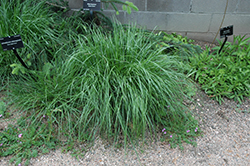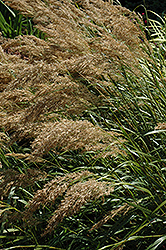Silver Spike Grass
Achnatherum calamagrostis
Plant Height: 28 inches
Flower Height: 4 feet
Spread: 3 feet
Sunlight:
![]()
![]()
Hardiness Zone: 4
Other Names: Spear Grass, Needle Grass, Stipa calamagrostis
Description:
This fine-textured grass produces stunning silvery plumes in early summer that mature to tan, and persist into winter; this grass sways beautifully in a breeze; a graceful addition to the garden or border
Ornamental Features
Silver Spike Grass features airy plumes of silver flowers held atop the stems from early to mid summer. Its attractive threadlike leaves are emerald green in color. As an added bonus, the foliage turns a gorgeous gold in the fall. The tan seed heads are carried on showy plumes displayed in abundance from late summer to late winter.
Landscape Attributes
Silver Spike Grass is a dense herbaceous perennial grass with a shapely form and gracefully arching stems. It brings an extremely fine and delicate texture to the garden composition and should be used to full effect.
This is a relatively low maintenance plant, and is best cleaned up in early spring before it resumes active growth for the season. It has no significant negative characteristics.
Silver Spike Grass is recommended for the following landscape applications;
- Mass Planting
- Rock/Alpine Gardens
- Border Edging
- General Garden Use
Planting & Growing
Silver Spike Grass will grow to be about 28 inches tall at maturity extending to 4 feet tall with the flowers, with a spread of 3 feet. Its foliage tends to remain dense right to the ground, not requiring facer plants in front. It grows at a medium rate, and under ideal conditions can be expected to live for approximately 20 years. As an herbaceous perennial, this plant will usually die back to the crown each winter, and will regrow from the base each spring. Be careful not to disturb the crown in late winter when it may not be readily seen!
This plant does best in full sun to partial shade. It does best in average to evenly moist conditions, but will not tolerate standing water. It is not particular as to soil pH, but grows best in rich soils. It is somewhat tolerant of urban pollution. This species is not originally from North America. It can be propagated by division.

